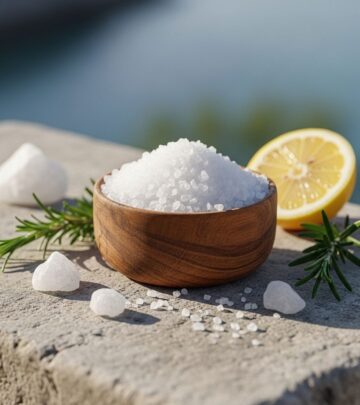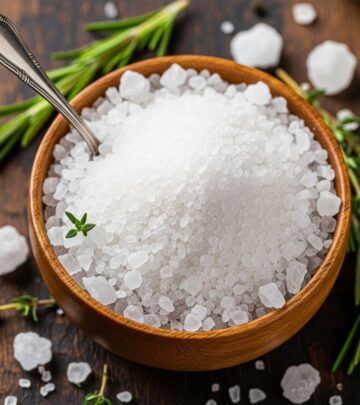13 Surprising Health Benefits Of Alkaline Water You Should Know
Balancing drink pH may enhance hydration and prompt consideration of potential risks.

13 Surprising Health Benefits Of Alkaline Water: Evidence, Myths & Precautions
Alkaline water has grown in popularity among health enthusiasts and wellness communities, with many claiming it can offer a range of health benefits beyond those of standard tap water. But what does science say about alkaline water’s impact on hydration, disease prevention, and overall well-being? This comprehensive guide breaks down the facts and explores potential benefits, mechanisms, risks, and frequently asked questions regarding alkaline water.
Table of Contents
- What Is Alkaline Water?
- How Does Alkaline Water Work?
- 13 Potential Health Benefits Of Alkaline Water
- Possible Side Effects & Precautions
- Frequently Asked Questions (FAQs)
What Is Alkaline Water?
Alkaline water is water that has a higher pH than regular drinking water, usually between pH 8 and 9.5. Standard drinking water has a neutral pH of about 7, while alkaline water is less acidic and sometimes contains additional minerals like calcium, potassium, magnesium, and bicarbonate. It is often produced through:
- Natural processes (water flowing over mineral-rich rocks)
- Ionization machines (electrolysis)
- Adding alkaline minerals or baking soda
Manufacturers often advertise its health-promoting properties, leading to widespread popularity among athletes, dieters, and those seeking wellness trends.
How Does Alkaline Water Work?
Proponents claim that alkaline water can balance your body’s pH, reduce acidity, and offer antioxidant effects. The body maintains a tightly regulated blood pH (7.35–7.45), but the theory suggests that a higher dietary pH may:
- Neutralize excess acid produced by metabolism
- Decrease oxidative stress via negative oxidation-reduction potential (ORP)
- Support enzymatic activities and organ function
However, most medical experts argue that your lungs and kidneys effectively regulate blood pH regardless of what you drink or eat. The research into alkaline water suggests some plausible biological effects, but evidence is mixed and often preliminary.
13 Potential Health Benefits Of Alkaline Water
Let’s examine common claims and emerging evidence regarding alkaline water’s effect on health.
1. Hydration & Improved Fluid Absorption
Some studies suggest that alkaline water has smaller molecular clusters, which may enhance its absorption and hydration capabilities. Enhanced hydration is particularly relevant for athletes or individuals with high fluid needs.
- May hydrate cells more efficiently than standard water in certain conditions.
- Specific clinical advantages for enhanced sports performance remain unproven, though anecdotal evidence is common.
2. Acid Reflux Relief
A study showed that alkaline water with a pH of 8.8 could neutralize pepsin, the enzyme responsible for acid reflux, in vitro. Further, a 2017 clinical trial suggested combining a plant-based diet with alkaline water was as effective as medication for managing acid reflux symptoms, although diet seemed more influential than the water alone.
- May offer natural relief for people with chronic acid reflux or GERD.
- Substituting for certain acid-reducing medications has been explored but should be done with medical advice.
3. Bone Health Support
Research indicates that bones are sensitive to body pH levels. In acidic environments, bone breakdown increases and new bone formation declines. Alkaline water may help by supporting pH balance, potentially reducing bone resorption and supporting bone strength, especially in postmenopausal women.
- Improved bone density noted in some studies using alkaline water alongside calcium and vitamin D.
- More long-term, large-scale human trials are necessary.
4. Metabolic Syndrome & Heart Health
A 2022 study on postmenopausal women found a significantly lower proportion of metabolic syndrome and favorable metabolic markers (lower fasting glucose, healthier triglyceride-to-HDL ratio, lower diastolic blood pressure, and waist circumference) among regular alkaline water drinkers compared to non-drinkers. This may suggest:
- Potential reduction in risk factors for heart disease, stroke, and diabetes.
- Some effect on blood pressure modulation and fat metabolism.
5. Detoxification Support
Alkaline water may raise activity of the detoxifying enzyme superoxide dismutase, which helps combat oxidative stress and chronic inflammation. This in turn could reduce the risk of cardiovascular and degenerative diseases.
- Evidence is preliminary; further studies are warranted.
6. Longevity & Aging Effects
Animal studies have found that long-term consumption of alkaline water increased lifespans in mice, improving survival rates and showing no significant harmful tissue changes compared to controls. Human data is limited, but the findings point to a possible longevity benefit through “deceleration aging factor.”
- Potential anti-aging and health-span benefits under investigation.
7. Improved Peripheral Circulation
Some reports suggest alkaline water may enhance peripheral blood circulation, possibly benefiting individuals with circulatory disorders or those exposed to high physical stress.
8. Diabetes & Kidney Support
Emerging research shows that alkaline water may assist in glucose control for diabetic patients and offer adjunctive support in kidney function, potentially resulting in fewer medical complications.
- No conclusive human clinical trials; most data from animal or preliminary human studies.
9. Boosted Immunity & Disease Prevention
The high negative ORP of alkaline water may act as an antioxidant, supporting immune health and decreasing inflammation—important for preventing disease and supporting healing.
10. Enhanced Physical Performance & Recovery
Anecdotal accounts suggest less fatigue, improved athletic stamina, and faster post-exercise recovery among those using alkaline water. Scientific support for these claims is limited but growing, with some studies indicating reduced blood lactate levels during intense exercise.
11. Digestive Support
Alkaline water may assist in digestive health by neutralizing excess stomach acidity, reducing bloating, and improving comfort for sensitive stomachs, although more data is needed to confirm such effects in diverse populations.
12. Improved Sleep Quality
One study found regular alkaline water intake was associated with improved sleep quality and muscle strength in postmenopausal women. Mechanisms remain unclear but may be tied to improved hydration or metabolic changes.
13. Skin Health & Appearance
Proper hydration and potential antioxidant properties of alkaline water may also support skin moisture, reduce signs of aging, and help manage minor inflammations. While evidence is mostly anecdotal, some users report brighter, clearer skin with sustained alkaline water use.
Possible Side Effects & Precautions
While moderate alkaline water intake is considered safe for most healthy individuals, excessive or inappropriate use may lead to unwanted effects:
- Alkalosis: Overconsumption can potentially disrupt pH balance, leading to metabolic alkalosis, characterized by nausea, vomiting, muscle twitching, and hand tremors.
- Mineral Imbalance: High intake may impact absorption of certain nutrients, such as calcium, magnesium, or potassium.
- Gastrointestinal Symptoms: Bloating, indigestion, or discomfort are possible in sensitive individuals.
- Kidney Impact: Those with compromised kidney function should consult a medical professional before using alkaline water regularly.
- Insufficient Research: Much of the current evidence comes from animal studies or small population samples; large-scale human research is still needed.
Always consult a healthcare provider before making major changes to your water or dietary habits, especially if you have chronic health conditions or take medications.
Frequently Asked Questions (FAQs)
Q1. Can alkaline water cure diseases?
There is no scientific evidence to support claims that alkaline water cures diseases like cancer, diabetes, or hypertension. It may play a supportive role in wellness, but should not replace prescribed treatments or medicines.
Q2. What is the recommended daily intake of alkaline water?
No official guidelines exist. Many advocates suggest substituting 1–2 glasses of your daily water intake with alkaline water, starting slow and monitoring your body’s response.
Q3. Is alkaline water safe for children and pregnant women?
There is insufficient evidence on effects in these groups. Standard water is recommended, though occasional consumption in moderation is generally considered low risk unless advised otherwise by a physician.
Q4. How long does it take to see results from drinking alkaline water?
Benefits, if any, may take several weeks to manifest and are highly individual, depending on baseline health and lifestyle factors.
Q5. How is alkaline water different from mineral water or spring water?
Alkaline water refers to pH (higher than 7), while mineral water is defined by the presence of specific dissolved salts and minerals. Some alkaline waters are mineral-rich, but not all mineral waters are alkaline.
Q6. Does cooking with alkaline water affect food taste or nutrition?
Some report subtle improvements in taste, but there is little research showing any significant nutritional difference when using alkaline water in cooking versus regular water.
Summary Table: Highlights of Select Benefits & Risks of Alkaline Water
| Potential Benefit | What Science Says | Current Evidence Level |
|---|---|---|
| Hydration | Possible improved cellular hydration | Some human and animal studies |
| Bone Health | Moderate support for reduced bone loss in postmenopausal women | Small clinical trials |
| Metabolic Syndrome | Improved risk markers in some human populations | Recent comparative studies |
| Acid Reflux | Neutralizes pepsin; may provide symptom relief | Small clinical and lab studies |
| Longevity & Aging | Improved lifespan in animal models | Strong animal evidence; limited human data |
| Risks/Side Effects | Rare but possible risks of alkalosis, mineral imbalance | User- and dose-dependent; mostly with excessive intake |
Takeaway
Alkaline water is a low-calorie beverage that may offer hydration and other possible health benefits, particularly for those at risk of acid reflux, metabolic syndrome, or bone mineral loss. However, large population-based or long-term clinical trials are lacking. It is best viewed as a supplementary part of a healthy diet—not a substitute for balanced nutrition or medical care. Always use in moderation and consult a healthcare professional if you have medical concerns.
References
- https://www.witpress.com/Secure/elibrary/papers/WS11/WS11029FU1.pdf
- https://pmc.ncbi.nlm.nih.gov/articles/PMC4906185/
- https://www.arthritis.org/health-wellness/healthy-living/nutrition/alkaline-water-benefits
- https://pmc.ncbi.nlm.nih.gov/articles/PMC9621423/
- https://www.health.harvard.edu/staying-healthy/is-alkaline-water-better
- https://www.healthline.com/health/food-nutrition/alkaline-water-benefits-risks
- https://www.news-medical.net/health/Health-Benefits-of-Alkaline-Water.aspx
- https://www.webmd.com/diet/what-is-alkaline-water
Read full bio of Sneha Tete











